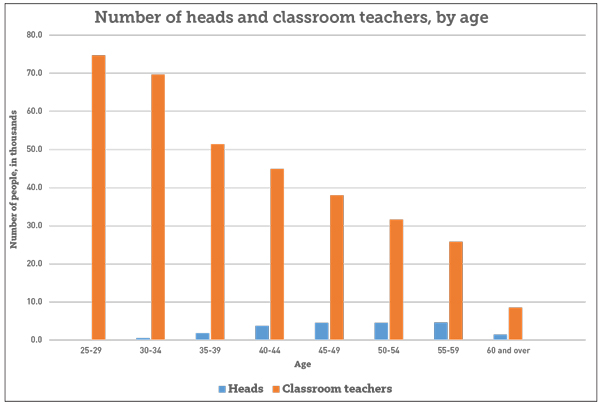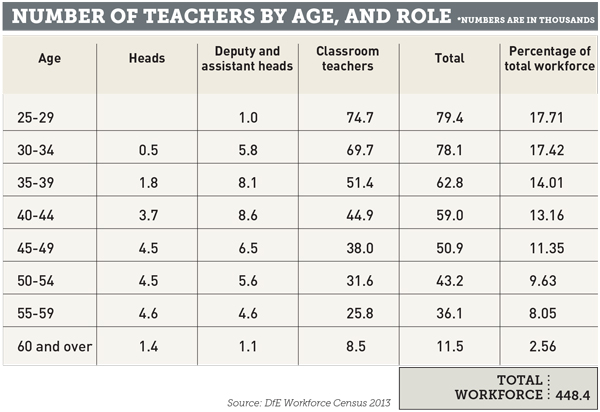Membership of the board tasked with scrutinising the impact of teachers working into their 60s will be decided next month, with unions hoping the review will prove their concerns.
Applications to join the board – called the Teachers’ Working Longer Review – closed on Monday. Appointments are due to be made by the end of February.

The government wants teachers to work until 68 before claiming a full pension. At present, the pension age is 65 or 60, depending when the scheme was joined.
The Department for Education (DfE) says that the board’s remit is to make sure that the change does not “impact detrimentally” on the workforce and that teachers have the “capacity to drive up standards”.
A steering group that includes representatives of all the major trade unions has already been set up. It held its first meeting last October.
The National Union of Teachers (NUT) and Association of Teachers and Lecturers (ATL) hope the review will highlight the issues the unions have already raised, such as the impact on older teachers’ health and more flexibility in their workload.
Both the unions and Labour’s Cardiff West MP Kevin Brennan think the review will highlight the difference in how older teachers work, compared with teachers in their 30s or 40s.

There was, however, a concern that the review was not carried out before the government introduced the policy and that it was now being “retro-fitted”, Mr Brennan (pictured) said.
Last year’s workforce census showed there were 11,500 teachers over 60 working in publicly funded schools. (See graph below). But more than staff 36,000 aged between 55- and 59 were still teaching.
The expectation is that more teachers will stay past 60 to access their full pension.
An ATL spokesman said: “We would have liked the review to come first and the decisions to come after, but obviously that’s not our choice. We are hoping this review will prove us right.”
Andrew Morris, head of pay and pensions at the NUT, said the union still opposed the increase in pension age, but added: “The reason for us to join up with the review is that we think it will throw up evidence, both medically and of an employment nature, that working until 68 is unrealistic and will impact on the education of students.”
Mr Brennan said: “We really need to look at what we do with our more experienced professionals – what we should ask of them – and re-engineer the job as appropriate to take advantage of their great experience.
“Really great teachers can be burnt out by their late 50s, early 60s, and it shouldn’t really reach that stage.”
A DfE spokesperson said: “Encouraging and enabling more later-life working offers a massive potential financial boost both for individuals and the economy.
“That is why it is vital that we prepare the teaching profession for this, to make sure it remains as attractive as it is now. This review will explore the impact of working in later life on teachers’ health and their ability to do their jobs.”
It is understood an interim report will be produced later this year by the group and a final report published in 2016.








Your thoughts